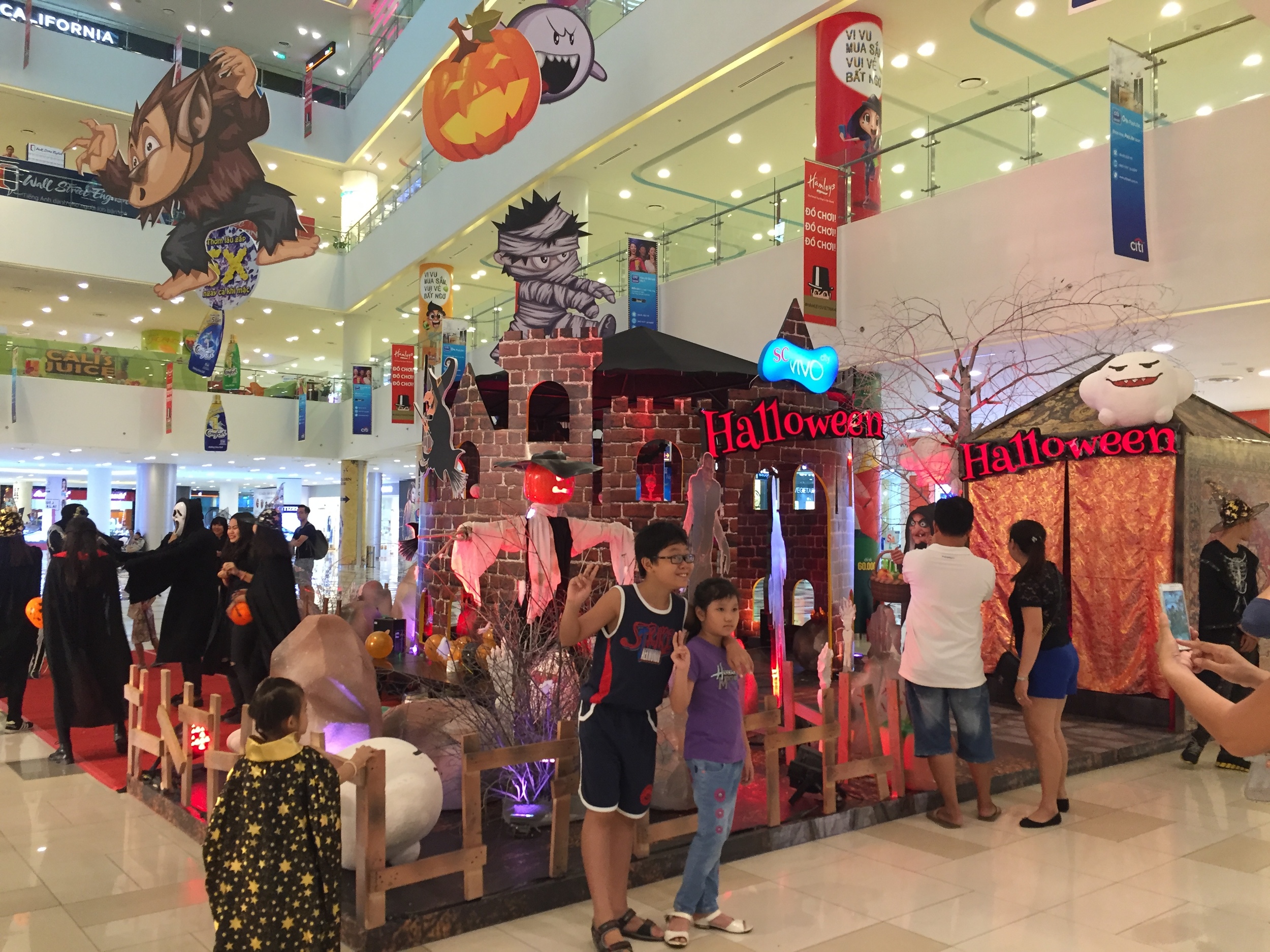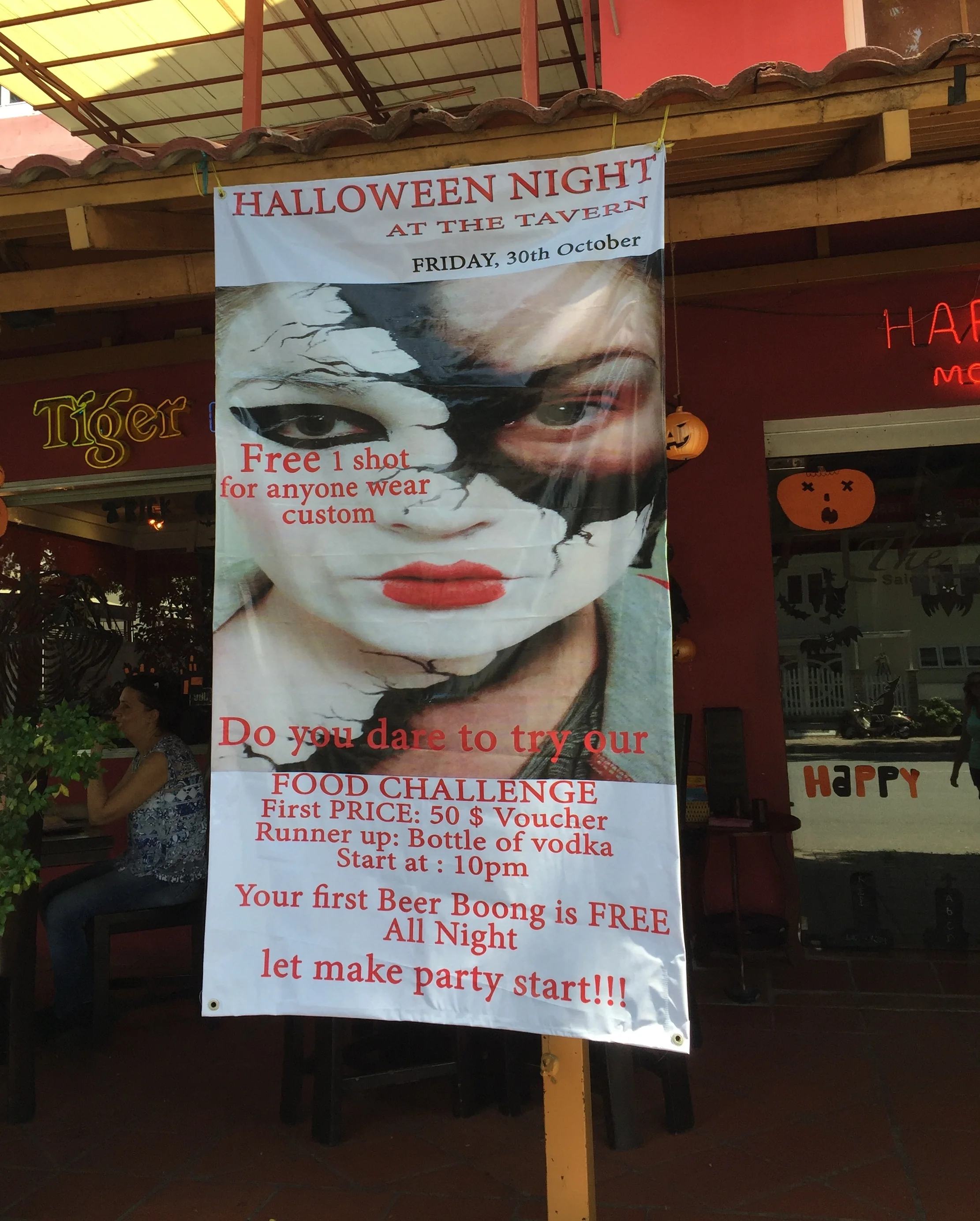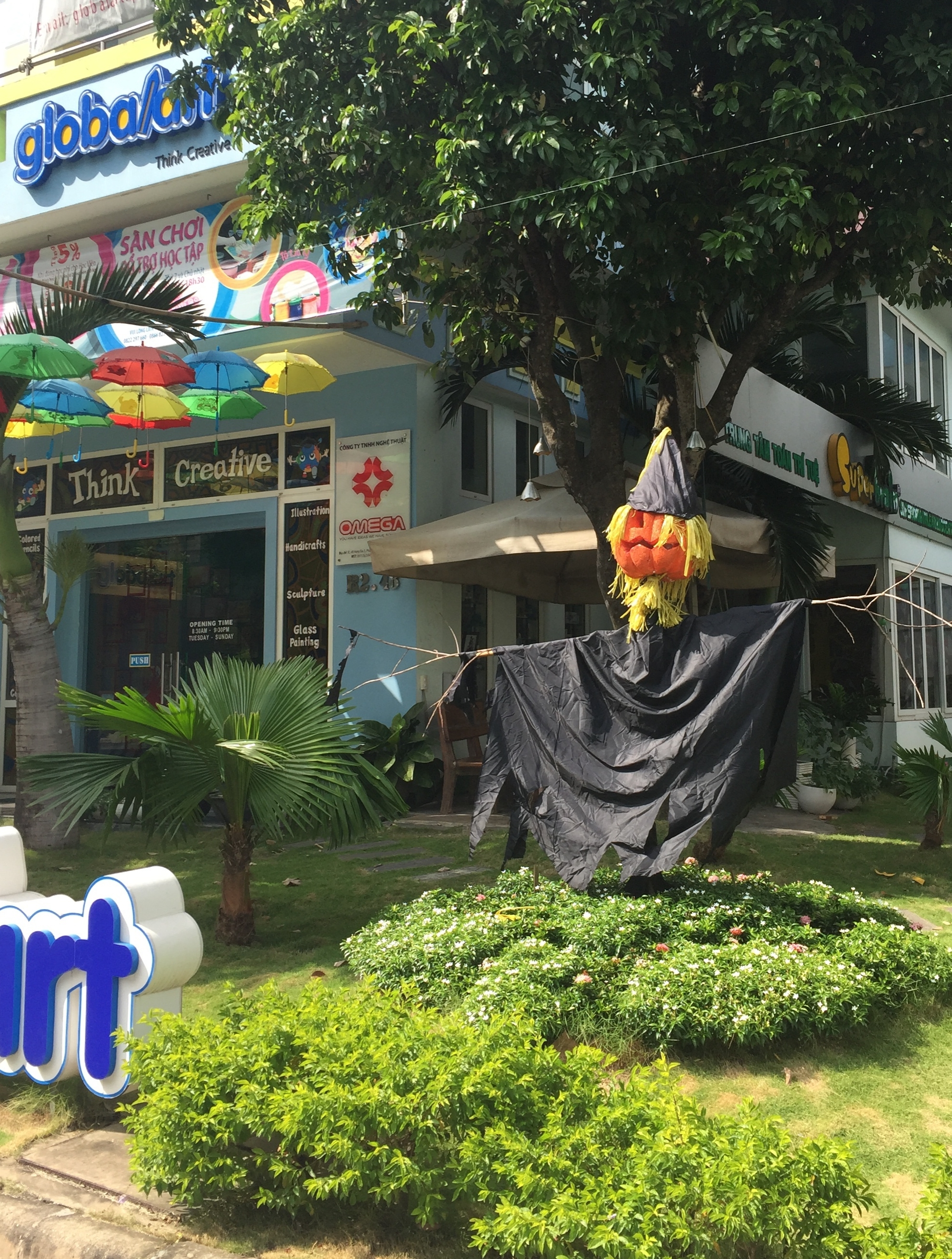A Vietnamese Halloween
HO CHI MINH CITY - I’m not sure what I expected to do when I first arrived in Saigon, but it certainly wasn’t decorating for Halloween. And yet, in my jet-lagged stupor, I found myself doing just that, for a Halloween party my hosts were planning. Ironically, Halloween has characterized my inaugural days in this city, country and continent.
I’ve asked everyone I could about the holiday in Vietnam, from expats to taxi drivers. I have found no data and only one article on the subject. Based on my language-constrained research, the consensus is that 2015 is the first year Halloween has been “so big” in HCMC. Meaning, most people seemed to know what Halloween is, and many main streets had signs of the holiday: themed decals on store windows, Halloween deals and events at bars (publicized in English), random decorations, sporadic costumes and groups of young trick-or-treaters. I found temporary structures in the middle of shopping malls selling all the typical Halloween costume regalia: capes, animal ears, wings, Rapunzel wigs, grim reaper masks, you name it. One of these structures (titled “Castle Freak”) featured a haunted house photo shoot background and costumed employees dancing and singing to pop music. (Sort of like posing with Santa at Christmas.) As one expat told me, Halloween has come to Vietnam by way of commercialism.
I witnessed an expat Halloween with my hosts and their young children and a Halloween on the streets of downtown Saigon later that night. The expat version felt familiar, complete with pumpkin sugar cookies and cupcakes. However, when it came to chaperoning the children’s trick-or-treating, we basically played a game of “which house does Halloween?” Those with obvious decorations were ready with candy. The rest were hit or miss. Some had candy but seemed unsure exactly of the protocol for giving it out; others thought the gaggle of children on their doorstep just wanted to come inside. Universally though, bystanders seemed to enjoy the whole trick-or-treating spectacle. Everyone smiled. Several people took photos.
I had purchased my costume that day at one of the aforementioned vendors, and it was admittedly weak: a gold cape and a purple Mardi Gras mask. I decided to go for sparkle over content. My two friends put more effort into their much cooler costumes: snow fairy and creepy doll. Surprisingly though, the three of us made something of a celebrity attraction while walking through a packed Nguyen Hue promenade at 11pm. A crowd of Vietnamese strangers gathered around, each wanting us to pose for photos with every member of the family.
In keeping with the smiles, Halloween here felt happy, not scary. The costumes of locals seemed to mostly consist of purchased accessories with regular clothes, whereas expats were decked out with the morbid face paint, etc. Halloween in Vietnam is being forged through commercialism, parties and fun, not as a spinoff of a “day of the dead” type celebration.
Ultimately, the happy fascination of the Vietnamese sums up how Halloween felt here. Walking down the street in our costumes, people on motorbikes and on the sidewalk would stare, then always smile and wave. The Vietnamese seemed enchanted by the trick-or-treaters, and the (albeit few) gaggles of Vietnamese trick-or-treaters were having the time of their lives. Vietnam doesn’t traditionally have any comparable “dress up as whatever” holiday like Halloween or Purim, so this is new.
Even if it were associated with the dead, I don't know if it would be scary. Ancestor veneration is common in Vietnam, a country influenced by a mixture of Buddhism, Confucianism, Daoism and Christianity. Some of the illuminated altars you often find in Vietnamese businesses and homes are dedicated to deceased ancestors. The dead are thought to have the power to bring good fortune and protection to the living, in exchange for commemoration and respect. “The ritual is an expression of a spiritual belief that the world of the living and the world of the dead are not dichotomies, but rather, a shift of being, and a new becoming,” as one Vietnamese doctoral candidate wrote in a journal article on the subject. In this way, death does not seem to be associated with creepiness or morbidity. Ghosts aren't even traditionally considered that disturbing; they just have some unfinished business to work out. So, why would Halloween, or something connected with the beyond be scary? At least, this is my working theory. Any input is appreciated.
Regardless, Vietnamese Halloween definitely felt like a success. I even won second runner-up in a costume contest (somehow). Based on the enthusiasm we saw on the streets, I would expect next year’s Vietnamese Halloween to be even bigger, with more local participation. Guess we will all have to come back and find out.


